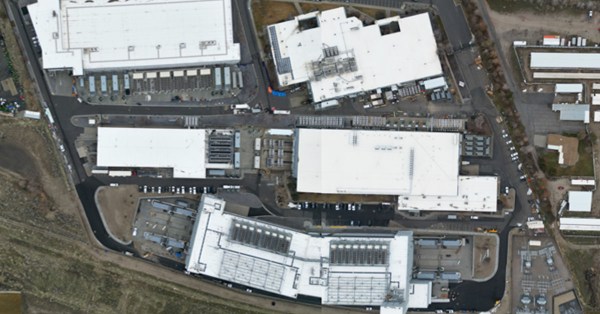Leveraging data centers effectively is often key to achieving business goals and, hence, key to the overall success of a business. With that in mind, here is a quick guide to what you need to know about the crucial role of data centers in modern business operations.
Understanding data center functions
At a very high level, the basic function of a data center is to house computing and networking equipment along with the infrastructure needed for it to run. This equipment is used to store, process, and/or disseminate data.
In a business context, data centers are typically used to host applications and/or services along with the data they need to function. They may also be used for long-term data storage. For example, if a business needs to archive data for legal and/or compliance purposes, it may use a data center to do so.
The level of functionality a data center can deliver is largely determined by its size. This determines the amount of resources it can hold. Traditionally, bigger was seen as better due to the power of large-scale data centers. Now, however, small-scale data centers are regaining popularity due to their flexibility and economy.
Considerations for data centers
Here are the five key considerations for businesses that use data centers.
Reliability: ensuring uninterrupted operations
Given that data centers are key to business operations, it is vital that they operate reliably. For practical purposes, this means implementing high levels of redundancy in key infrastructure such as power, climate control, and networking.
Power: Data centers often have multiple power sources from different utility providers or backup generators. They also have uninterruptible power supplies (UPSs) and generators in case of power outages.
Climate control: Data centers employ redundant cooling systems, including multiple cooling units and backup chillers. They also implement passive cooling measures such as airflow management to reduce dependence on active cooling.
Networking: Data centers implement diverse network paths and redundant network equipment. They may also be able to switch between wired and wireless connectivity options.
Scalability: accommodating growth and innovation
Modern data centers offer flexible infrastructure and resources that can be easily scaled up or down to meet changing demands. Scalability plays a crucial role in fostering innovation and agility in business operations.
By providing flexible access to computing resources and services, scalable data centers empower organizations to experiment with new ideas, launch innovative products and services, and respond quickly to changing market conditions. This agility allows businesses to stay competitive in rapidly evolving industries and seize new opportunities for growth and expansion.
Disaster recovery: mitigating risks and ensuring continuity
Disaster recovery planning is critical for businesses to mitigate the risks associated with unforeseen events such as natural disasters, cyber-attacks, or equipment failures. These plans outline procedures and strategies to minimize downtime, protect data integrity, and ensure business continuity in the face of disruptions.
Role of data centers in disaster recovery
Data centers play a pivotal role in disaster recovery by providing secure and resilient infrastructure for storing backup data and applications. They offer redundant systems, geographically dispersed facilities, and robust security measures to safeguard critical assets and facilitate rapid recovery in the event of a disaster.
Implementing robust disaster recovery strategies
Within data center infrastructure, robust disaster recovery strategies are implemented to minimize downtime and data loss. This includes regular backups, data replication across multiple locations, failover mechanisms, and automated recovery processes.
These measures ensure that businesses can quickly recover operations and restore services with minimal disruption to productivity and customer experience.
Cost efficiency: optimizing resources and investments
Since data centers are significant investments, it makes sense to operate them as cost-effectively as possible. Here are three tips to help.
Deploying energy-efficient hardware: Energy-efficient hardware is designed to optimize performance per watt, minimizing electricity usage while maintaining performance levels. Furthermore, modern hardware often incorporates features like dynamic power management and efficient cooling mechanisms to further enhance energy savings.
Implementing server virtualization: By leveraging server virtualization technology, businesses can consolidate multiple virtual machines (VMs) onto fewer physical servers. This optimization reduces hardware costs, minimizes power consumption, and streamlines management tasks.
Utilizing data center infrastructure management (DCIM) tools: DCIM tools monitor power usage, cooling efficiency, space utilization, and asset inventory, allowing businesses to make informed decisions to improve cost efficiency and streamline operations. Additionally, DCIM tools facilitate capacity planning, helping businesses allocate resources more effectively and avoid unnecessary expenditures on infrastructure expansion.
Competitive advantages: leveraging data center capabilities
Data centers offer three key competitive advantages compared to public cloud services.
Cost-effectiveness: The more data businesses store and/or process, the more economical it tends to be to use a data center rather than public cloud services.
Confidentiality: With data centers, your data is kept on your own devices and physically separated from other people’s data. With public cloud services, you are dependent on software-based controls.
Customizability: Using data centers enables businesses to customize their equipment configuration to their exact needs and wants. This can significantly improve performance and/or cost-effectiveness.







